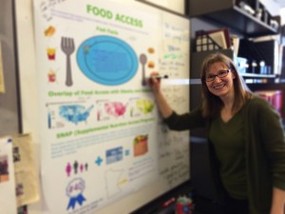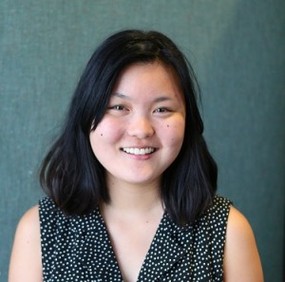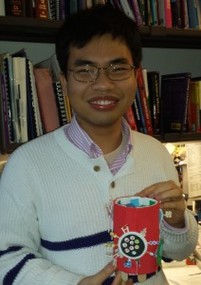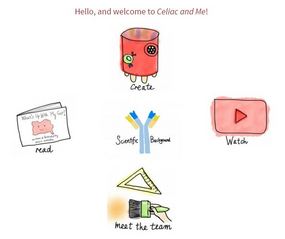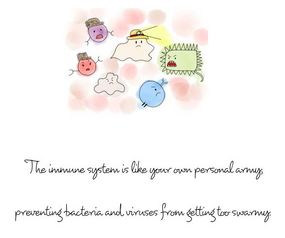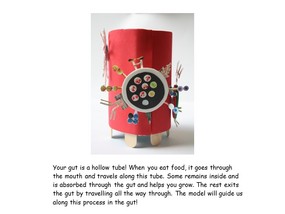Three years ago, Professor Debby Walser-Kuntz was teaching a class on immunology. Her students were working on projects about celiac disease (CD), and she noticed that some went above and beyond the requirements of the course. Some even wanted to continue the work they had started after the term ended. As the Broom Faculty Fellow for Public Scholarship, Walser-Kuntz began learning more about online depositories for disseminating civically-engaged, peer-reviewed research with the possibility of reaching a broader audience. Walser-Kuntz’s interest in public scholarship, combined with her students’ excitement about their academic learning, prompted her to start a project that has become a flourishing academic civic engagement endeavor.
In the subsequent immunology classes (which are “ACE” classes), many students have created products regarding CD with and for community partners. Before starting to design products, students met with community partners to hear their stories and learn more about the applications of scientific knowledge of CD. As Walser-Kuntz explains, “one of the really lovely things about doing community-based projects is that students have the opportunity to appreciate that people in the community have knowledge and wisdom to share . . . learning what is is live to live with CD made the disease seem more real to students, and they had a better understanding of what their community partner was looking for.” For example, for groups working on educational materials for children, community partners helped students better understand how kids would learn and think about CD. Until the students had talked to community partners, says Walser-Kuntz, “they didn't have a good understanding of what had already been done and how they could contribute.” Many of these community partners have come back excited to work with students each year, and Walser-Kuntz emphasizes that she values building these long-term, deep relationships.
One of these community partners is Julie Salato, Executive Director of the Celiac Center of Minnesota. She describes the partnership as “inspiring and productive,” and describes the experience of watching “students who were immersed in the academia of celiac disease, dedicate their knowledge and compassion in designing curriculum and activities for the children who live with the disease” as “rewarding.” Some of the projects and products Salato and students have worked together to develop will continue to be used in the CD community for years. The experience was one of mutual enrichment and innovation, Salato says, adding: “It's impossible to determine whose lives were impacted more--the college students dedicating hours of time and creativity to the Gluten Detective program or the elementary aged Gluten Detectives, who benefited from such dedication.”
Recently, Walser-Kuntz, along with community partners Salato, Jody Friedow (of the Northfield Can’t Eat Wheat support group), and two Carleton students, published an article for the online depository Community-Engaged Scholarship for Health (CES4Health). In this articles, the authors discuss the public scholarship and community engagement aspects of the “Celiac and Me” website. Instead of a typical peer reviewed article in an academic journal, this type of publication allows for any form of public scholarship (surveys, tv shows, theatre performances, websites, etc.) to be peer-reviewed by experts in the field and community members. These reviewers examine both the product and the article describing the product’s process and impacts. Walser-Kuntz and her co-writers began working on the article in March of 2015, and submitted it on the day of Carleton’s graduation.The authorship of this article is particularly interesting: in addition to Professor Walser-Kuntz, two community partners and two students collaborated on this publication. The two students, both recent graduates of the Class of 2015, were Emiri Matsuda and Phuoc “Tien” Tran. To read more about Matsuda’s work on creating an illustrated picture book called “What’s Up With My Gut?,” visit this CCCE profile from 2015.
Tien Tran’s involvement with the publication and project began as part of a civic engagement project in Walser-Kuntz’s immunology class. When he entered the class, he didn’t “have an inkling of what Celiac disease was.” Tran eventually designed a tactile intestine model that gives its users a tangible and interactive way to learn about the biology of CD. He describes the experience as “ a good example of really taking chances and approaching new learning opportunities and problems with an open mind.” He found conversations with children with CD and their families helped him have a better understanding of “the need to develop resources to aid people in coming to terms with their condition and advocate for the sake of themselves and others.” This project has helped Tran think about his plans to pursue a medical career, and has inspired his desire to become the type of medical professional who uses interdisciplinary methods. Tien hopes to “translate” scientific learning “into human terms so they can help people address their concerns and improve their lives.”

